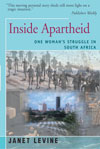Idly, one morning this Thanksgiving holiday weekend, I picked up a recently published academic history book on a black South African writer and read this phrase, “…on the terrain of language…” in the Introduction where the author, Hlonipha Mokoena, quotes the South African literary giant, J.M. Coetzee, from his book White Writing: “…landscape remains alien, impenetrable, until a language is found to win it, speak it, represent it. It is no over- simplification to say that landscape art and landscape writing in South Africa … revolve around the question of finding a language to fit Africa, that will be authentically African.”
This idea, wholly new to me, provided as they say, much food for thought. Possibly because in my latest manuscript I try to evoke the spirit of the landscape of my motherland and especially the significance of “light” (sunlight) as a central metaphor. One of my protagonists loves the “light” but slowly realizes as she awakens from the darkness imposed on the country by the Afrikaner-African soul that her being lives in many other dark places. T.S. Eliot called this phenomenon an “objective co-relative” (think of Emily Bronte’s Wuthering Heights with its inner and outer storms.)
I had no idea that a body of literature exists on “the terrain of language” and I am content I did not; otherwise I am sure my writing would have become too self-consciously contrived. I am pleased I wrote from my heart.
However, this is an interesting line of inquiry to pursue. Let’s take South African writing. An English-speaking settler whose antecedents date back not even two hundred years may write of the land in something like these terms “The red land was rich and fecund, bordered by indigenous acacia and exotic eucalyptus, content to conceive and gestate under the vastness of clear blue sky, lit like a stage by the burnishing sunlight.” These are words and concepts typical of the inheritors of the writing of Thomas Hardy and other great evokers in language of the English terrain. An Afrikaner with over four hundred years of settlerdom has a different language, a paean of appreciation, a paean of pain, “Ah, die rooi aarde, die rooi aarde, bloed van my bloed, die land van my vaders, my land, Godse land.” (Ah, the red earth, the red earth, blood of my blood, the land of my fathers, God’s own land.) An African writer, with less than a hundred year heritage of written language expressing his indigenous African terrain, yet is the possessor of a timeless oral tradition of comprehending the land; and he writes of it, as if a living part of his soul, the place where all the generations of his ancestors lie, intrinsically present in the very dust he breathes. He is the land and the land is him. He is black and brown and dark, almost dried blood dark. He does not need the lyrical beauty of English, or the history-burdened associative language of Afrikaans; in him, in his language, he carries the terrain of Africa, written in an African language.
Can giants such as J.M Coetzee and Nadine Gordimer, or even little known me write authentically of South Africa in our “terrain of language?” This is the vexed question that I’ve been chewing over. And where does writing from one’s heart enter the discussion?
Marlene van Niekerk is an Afrikaner poet and author whose magnificent recent novel Agaat (see my blog 2011/01/09) comes closer than any South African work I have read in creating through poetic imagery and prose that which move us beyond the “terrain of language” and into the philosophical realm of the concept of “place.” This is truly a great South African novel of “place”. But that is a blog for another time.




I see you don’t monetize your website, don’t waste your traffic,
you can earn additional cash every month. You can use the best adsense alternative for any
type of website (they approve all websites),
for more info simply search in gooogle: boorfe’s tips monetize your website